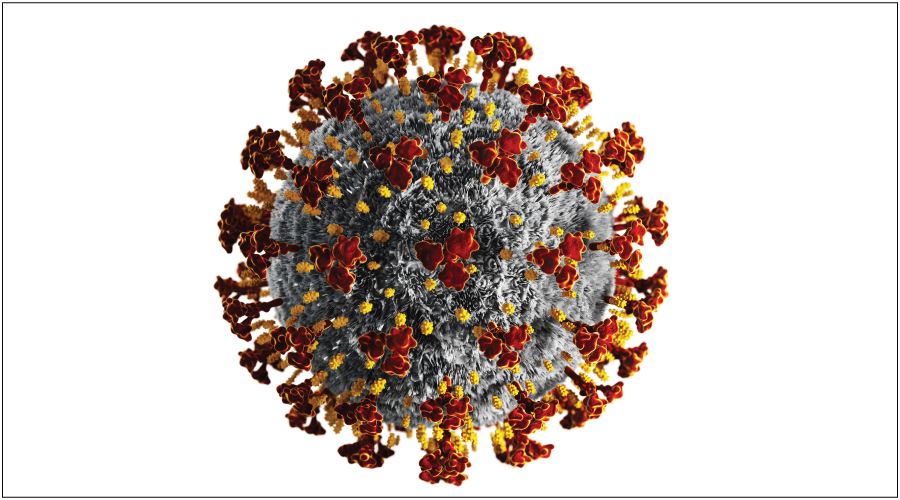COVID-19 Updates and Developments (Week of November 9)
- November 13, 2020

President-elect Joe Biden named November 9 a team of leading public health experts to a newly formed advisory board that will help shape the incoming administration’s response to the COVID-19 pandemic. The announcement comes with new cases rising sharply across the country.
The Transition COVID-19 Advisory Board will be co-chaired by Dr. David Kessler, a former Food and Drug Administration (FDA) Commissioner, Dr. Vivek Murthy, a former Surgeon General, and Dr. Marcella Nunez-Smith, an associate dean for health equity research at Yale University.
Other members include Dr. Luciana Borio, Dr. Rick Bright, Dr. Ezekiel Emanuel, and Dr. Atul Gawande.
“Dealing with the coronavirus pandemic is one of the most important battles our administration will face, and I will be informed by science and by experts,” said President-elect Biden. “The advisory board will help shape my approach to managing the surge in reported infections; ensuring vaccines are safe, effective, and distributed efficiently, equitably, and free; and protecting at-risk populations.”
Agency Action
Department of Health and Human Services (HHS)
November 12—The federal government is partnering with large chain pharmacies and networks of independent pharmacies and regional chains to increase access to COVID-19 vaccines when they become available, the agency announced. “We are leveraging the existing private sector infrastructure to get safe and effective vaccines supported by Operation Warp Speed into communities and into arms as quickly as possible with no out-of-pocket costs,” said HHS Secretary Alex Azar.
Food and Drug Administration (FDA)
November 9—FDA issued an emergency use authorization (EUA) for Eli Lilly and Company’s investigational monoclonal antibody therapy bamlanivimab for treating mild-to-moderate COVID-19 in patients who are 12 or older, weigh at least 40 kilograms, and are at high risk of severe illness and/or hospitalization. Bamlanivimab is not authorized for use in patients who are hospitalized due to COVID-19 or require oxygen therapy due to COVID-19.
Centers for Medicare & Medicaid Services (CMS)
November 10—Effective immediately, Medicare will cover monoclonal antibodies to treat COVID-19 with no cost sharing for beneficiaries during the public health emergency (PHE), the agency announced. The coverage includes bamlanivimab, which as noted above recently received an EUA from the FDA. Medicare won’t pay for monoclonal antibody products that health care providers receive for free, which the agency expects to be the case initially, but will reimburse for infusion of the product. When health care providers begin purchasing these products, Medicare anticipates setting the payment rate in the same way it does for COVID-19 vaccines. CMS plans to issue billing and coding instructions for health care providers soon. Meanwhile, on November 12, HHS announced plans for allocating 300,000 doses of bamlanivimab that the federal government previously purchased. Beginning immediately, HHS said initial doses will be allocated to state and territorial health departments to determine which health care facilities receive the infusion drug. The weekly allocations will be proportionally based on confirmed COVID-19 cases in each state and territory over the last seven days, HHS said. The government has the option to purchase up to 650,000 additional doses through June 30, 2021.
Other Developments
November 9—Preliminary results show mRNA-based vaccine candidate, BNT162b2, which was developed by Pfizer Inc. and German firm BioNTech SE, is 90% effective in preventing COVID-19, the companies announced. The vaccine candidate started a phase 3 clinical trial in July, enrolling more than 40,000 participants to date. According to a statement, roughly 42% of global participants and 30% of U.S. participants have racially and ethnically diverse backgrounds. The 90% efficacy rate was achieved seven days after two doses of the vaccine. The companies will submit data from the full Phase 3 trial for peer review. The news came as COVID-19 infection rates are setting records worldwide. The companies expect to produce globally up to 50 million vaccine doses in 2020 and up to 1.3 billion doses in 2021.
November 9—The American Hospital Association (AHA) is calling on HHS “to fully reinstate” Provider Relief Fund (PRF) post-payment reporting guidance initially issued in June. In the June frequently asked questions (FAQs), HHS broadly defined “lost revenue” for purposes of accounting for provider relief funds as “any revenue that . . . a health care provider lost due to coronavirus.” The agency narrowed that definition, however, in a notice issued September 19. On October 22, HHS released updated guidance after lawmakers and provider groups, including AHA, raised concerns about the changes, which they said could put additional financial strain on hospitals, particularly safety net and rural providers. In a letter to HHS Secretary Alex Azar, AHA said the amended guidance was still problematic and urged the agency to revert to the original June 19 FAQ. AHA noted that the October 22 guidance “did not restore the ability of hospitals to use a budgeted-to-actual comparison when calculating lost revenues.” HHS also did not restore hospitals’ ability to calculate lost revenue on a monthly, rather than annual basis. “These two flexibilities are critical so that hospitals are not penalized for year-over-year changes that allow them to better serve their communities,” AHA said.